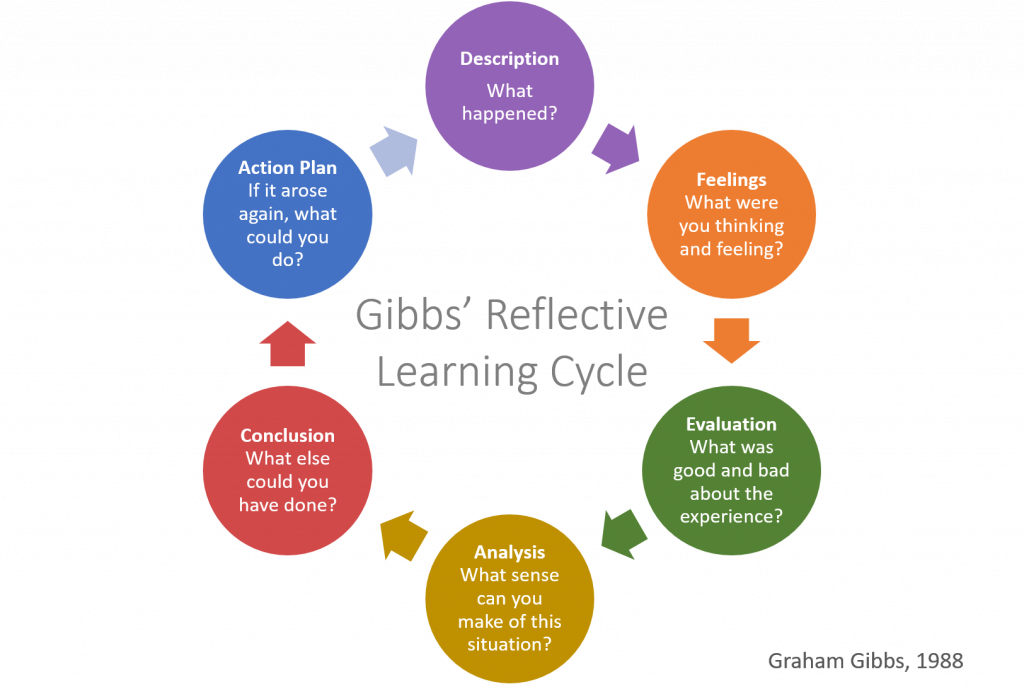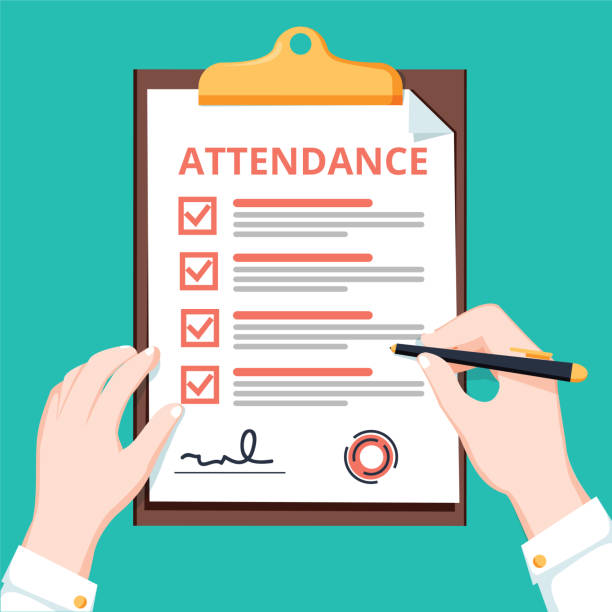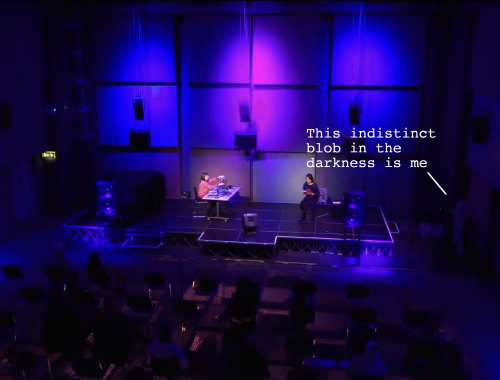Trying to keep everyone afloat!
If you had asked me what I thought would have been one of the hardest aspects of my placement would be before I had started, I probably would have said having the confidence to teach a class by myself while being watched by other teachers. As someone who struggles with anxiety, particularly in situations where I must speak publicly, I was sure that this would be the biggest barrier for me to overcome. I was wrong. Very wrong. In reality, what proved to be the biggest challenge was keeping all members of the class up to date with the work so that they could actively engage and benefit from the lessons as they progressed each week.
I am going to use Gibbs’ Reflective Cycle (Gibbs, 2013) to analyse the issue I was facing and how I dealt with it.

Description
My placement was at the County Antrim and Derry Country Fiddlers Association (CADCFA), which operates fiddle lessons every Saturday for all abilities from elementary level to diploma. One of my responsibilities was to keep the register up to date for not just the classes that I was teaching, but all the classes that were held. About two or three months into the placement, I noticed that some pupils, particularly those in the younger class (a range of 4-8 years old) that I taught, had very inconsistent attendance. This meant that pupils very quicky fell behind and were unable to engage with the lesson if they had missed a week or two, which also disrupted the members of the class that had attended.

Feelings
When trying to prepare lesson plans, I found myself feeling quite anxious that I was not getting through the material as quickly as I had anticipated we would. I was finding it very difficult to structure the lesson in a way that would allow all pupils to engage, without some feeling left out or behind or others feeling bored. During the lessons I felt frustrated because so much of the time was taken up by going over previous material to catch up students who hadn’t attended. I could also tell that the students who had been I attendance were feeling frustrated as well.
Evaluation and analysis
I am combining these two steps of the reflective cycle to avoid repeating myself.
Upon reflection, I think that one positive aspect of this experience is that by reviewing material from previous weeks, pupils who had been in attendance were able to solidify their knowledge and work out any problems they were having before moving on to any new material. It was also positive that the pupils who had missed a lesson were not left behind, feeling lost or like they couldn’t do anything in the lesson. The more negative aspect was definitely as previously stated, that the lessons were moving along slower than I had planned and the pupils could have been getting more from the lessons if everyone was in attendance every week.
Conclusion and Action Plan
What I have learnt from this situation is that I need to take a more flexible and varied approach to my lesson plans. This could have been a more positive situation for everyone involved if I had anticipated the discrepancies in rates of progression. If I were to face this situation again, in order to ensure that all pupils can get the most out of each lesson and to combat the issues I was facing when students would miss a lesson, I would create a WhatsApp group for parents. In this group each week, I would send out a description of what was covered in class and provide recordings of myself as resources for the students to use at home and prevent them from falling behind. When pupils who had missed a lesson return and need caught up, I would divide the class for the first part of the lesson, giving a recap activity for them to work on as a group. This will allow the pupils who attended the previous week to help those who hadn’t. This collaborative group work is ‘essential for pupil learning in music. It fosters growth through the bringing together of different skills’ (Button, 2010). It will also help break up the lesson via ‘frequent activity changes’ (Mark & Madura, 2009) and make it easier for the students to remain engaged given their young age.
In retrospect, my placement has provided me with many challenges throughout and each has allowed me to rethink my approach to music teaching and change my teaching style accordingly to ensure that I make the lessons as enjoyable and as productive for all my students as possible. The placement has really shed a light on what being a teacher is all about and allowed me to consider if it is what I want to do full time in the long term. At the moment, I don’t think it is my calling. I enjoy it one or two days a week, but I don’t feel that I have the passion to do it full time. Discovering this information alone has made my placement invaluable.
Word count: 856
Bibliography
Button, S., 2010. Music Teachers’ Perceptions of Effective Teaching. Bulletin of the Council for Research in Music Education, Volume 183, pp. 25-38.
Gibbs, G., 2013. Learning by doing : a guide to teaching and learning methods. Online ed. Oxford: Oxford Centre for Staff and Learning Development.
Mark, M. L. & Madura, P., 2009. Music Education in Your Hands : An Introduction for Future Teachers. 1 ed. s.l.:Taylor & Francis Group.
IMPROVISE, ADAPT, OVERCOME
You May Also Like

The Importance of Communication in the Workplace
31 March 2022
27 March 2022

